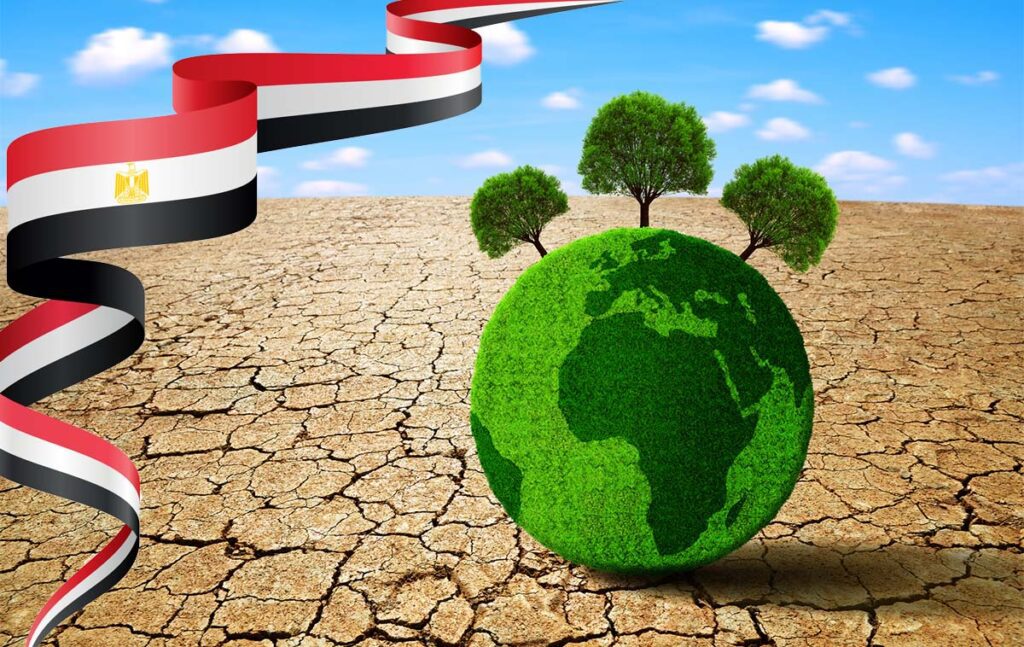AFRICA-EGYPT
Egypt will be the host of the African Centre of Excellence on Climate Change Resilience and Adaptation (ACECCRA), which will, once it has been established, aim to enhance climate-related education and scientific research capacity in support of achieving the Sustainable Development Goals by 2030 and the corresponding goals of the African Union’s Agenda 2063.
An agreement to establish the centre was signed on 3 December by Dr Yasmine Fouad, the Egyptian minister of environment, and Nardos Bekele-Thomas, the chief executive officer of the African Union Development Agency (AUDA-NEPAD), on the sidelines of the UN Climate Change Conference (COP28), which is taking place in the United Arab Emirates until 12 December.
Knowledge hub
“Africa has contributed very little to the planet’s changing climate – between 2% and 3% of global emissions – yet it stands out as the continent with the greatest vulnerability,” stated a June 2023 study, ‘Global Warming Status in the African Continent: Sources, challenges, policies, and future direction’.
The centre will serve as a knowledge hub for Africa focusing on adaptation and resilience, the development of innovative approaches and common curricula, as well as covering interdisciplinary research, focusing on community livelihoods.
In addition to supporting coordination between regional, national and local levels to enhance climate action on the ground by providing advice and support to decision-makers and practitioners in African countries, the centre will also support the role of women across all aspects of the social and economic lives of their communities.
The centre will also work on producing appropriate adaptation techniques to build adaptive capacity and development programmes for reducing hunger, poverty and displacement.
Bringing stakeholders together
Associate Professor Andrew Tucker, the deputy director of the African Centre for Cities at the University of Cape Town in South Africa, told University World News the establishment of the centre would be significant as it would help to bring together a wide array of stakeholders with a key interest in climate resilience and adaptation, not only to better understand the impacts of climate change on the African continent but also to explore inter-sectional solutions to strengthen resilience and foster adaptation.
“Such a centre could productively bring together policy officials, local government officials and civil society in the co-creation of effective endeavours,” Tucker added.
Echoing Tucker’s views, Dr Jackline Nyerere, a senior lecturer of educational leadership and policy and the director of the Centre for International Programmes and Collaboration at Kenyatta University in Kenya, told University World News the centre is a significant initiative, given the disproportionate impacts of climate change that the continent is grappling with.
“Education, research and collective action are key in responding to the impacts of climate change in Africa and, thus, the need for a platform that the centre is offering,” Nyerere said.
Nyerere’s view is in line with the August 2023 report, ‘Africa suffers disproportionately from climate change’.
Challenges
According to Tucker, a key challenge for the centre remains being able to put forward climate adaptation and mitigation strategies that are cost-effective and that can be taken to scale.
“While evidence from South Africa, for example, highlights a number of successful small-scale pilot projects, it remains necessary to find ways to leverage existing legislation to allow the scaling of such projects,” he said.
“Climate resilience and adaptation measures, in this regard, should not simply be seen as an ‘add-on’ to existing municipal work packages, but as a key element that helps shape the direction of municipal [or local] development,” Tucker pointed out.
Nyerere said that, to her, the centre represented “opportunities”, rather than challenges. “The environment is ripe for the ACECCRA platform, and I believe that there is goodwill to support climate action at the moment.
“The current discourse on climate change in Africa, however, appears thin on the role of education. My suggestion, therefore, is that the centre strengthens efforts on curriculum, research and the general role of education in climate action,” said Nyerere, who is also the secretary of the Centre for Sustainable Development and Education in Africa, or CSDEA.
“In line with the educational mission of ACECCRA, on 8 December at COP28, we are also launching a pan-African, 12-week MOOC [Massive Open Online Course] programme to build the knowledge of students at African universities about the SDGs and the challenges of climate change in the African context,” Nyerere said.
“The accompanying seminars and workshops will support the undergraduate students to take action in their communities to support achievement of the SDGs and find strategies for adapting to, and mitigating the effects of climate change on the African continent,” she noted.
“I see synergies in the African efforts in both ACECCRA and MOOC,” she said.
Source link : https://www.universityworldnews.com/post.php?story=2023120508443294
Author :
Publish date : 2023-12-05 08:00:00
Copyright for syndicated content belongs to the linked Source.
